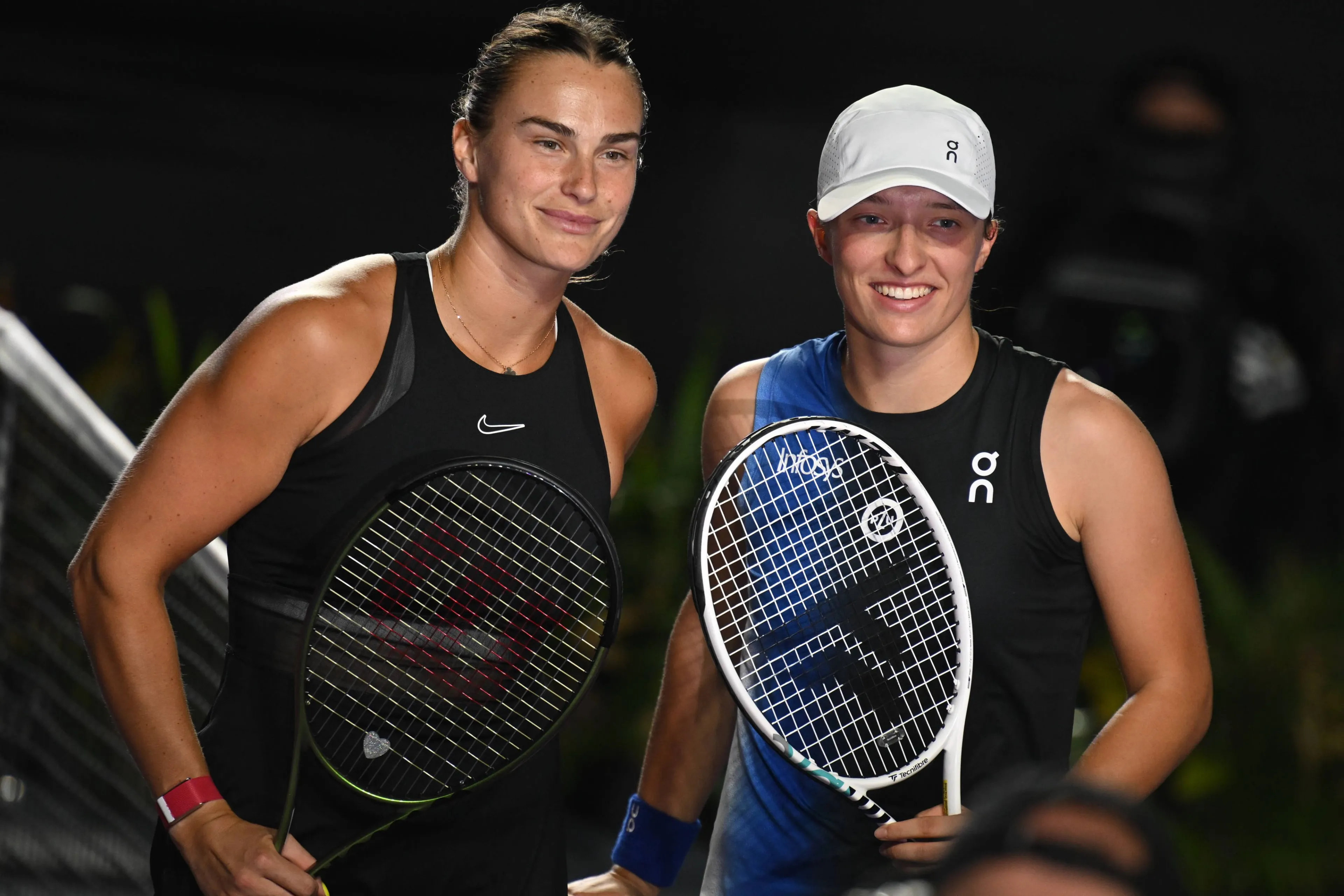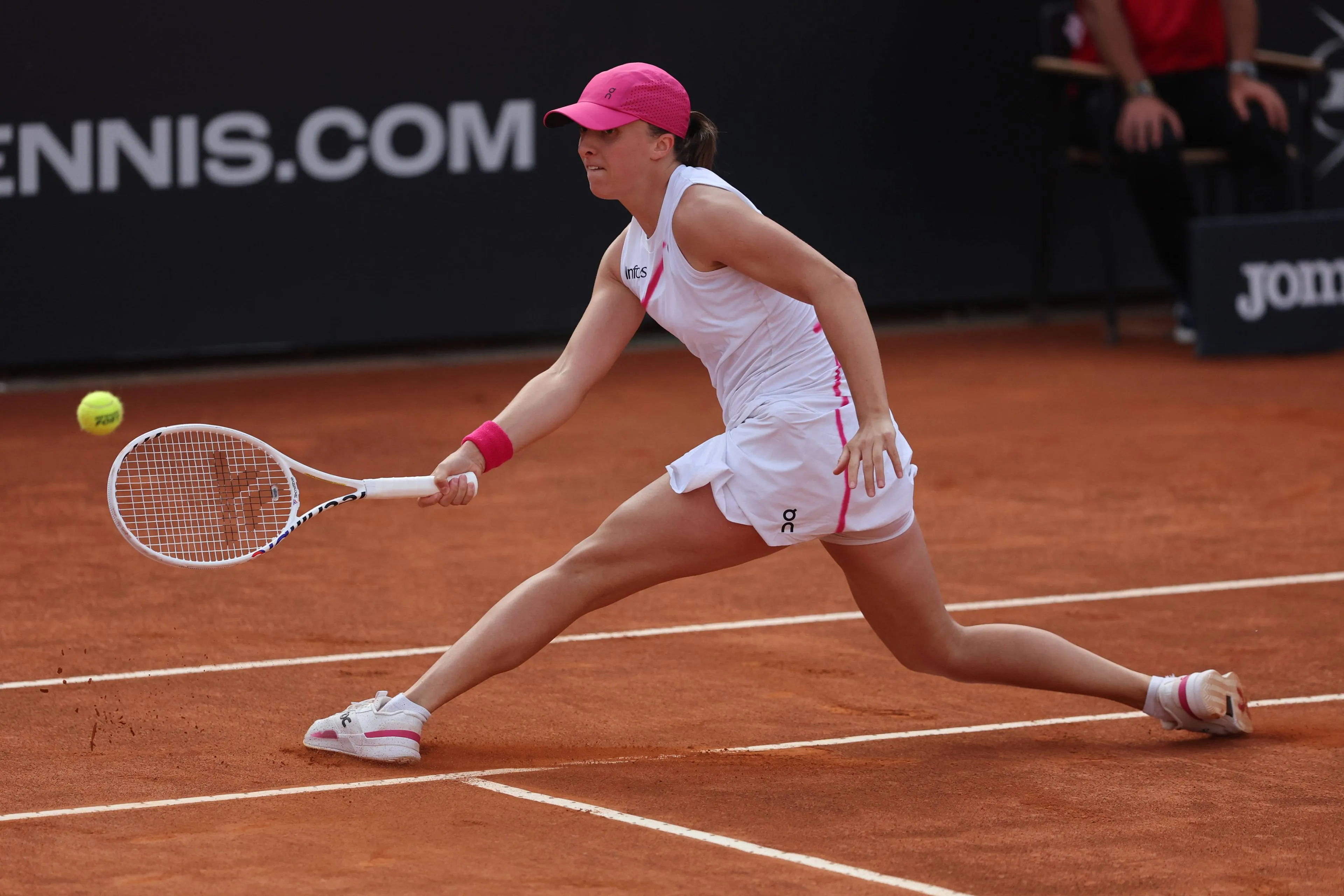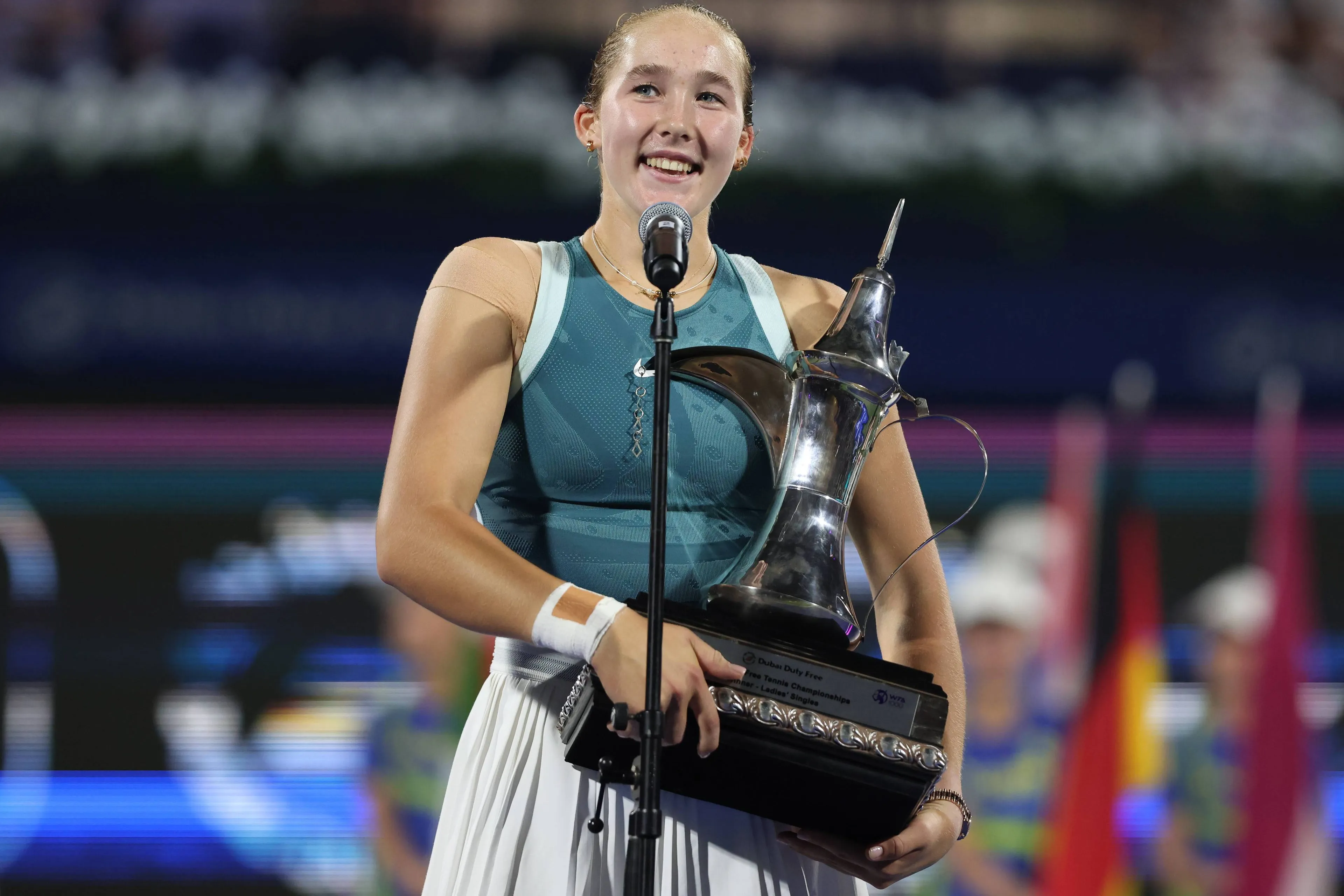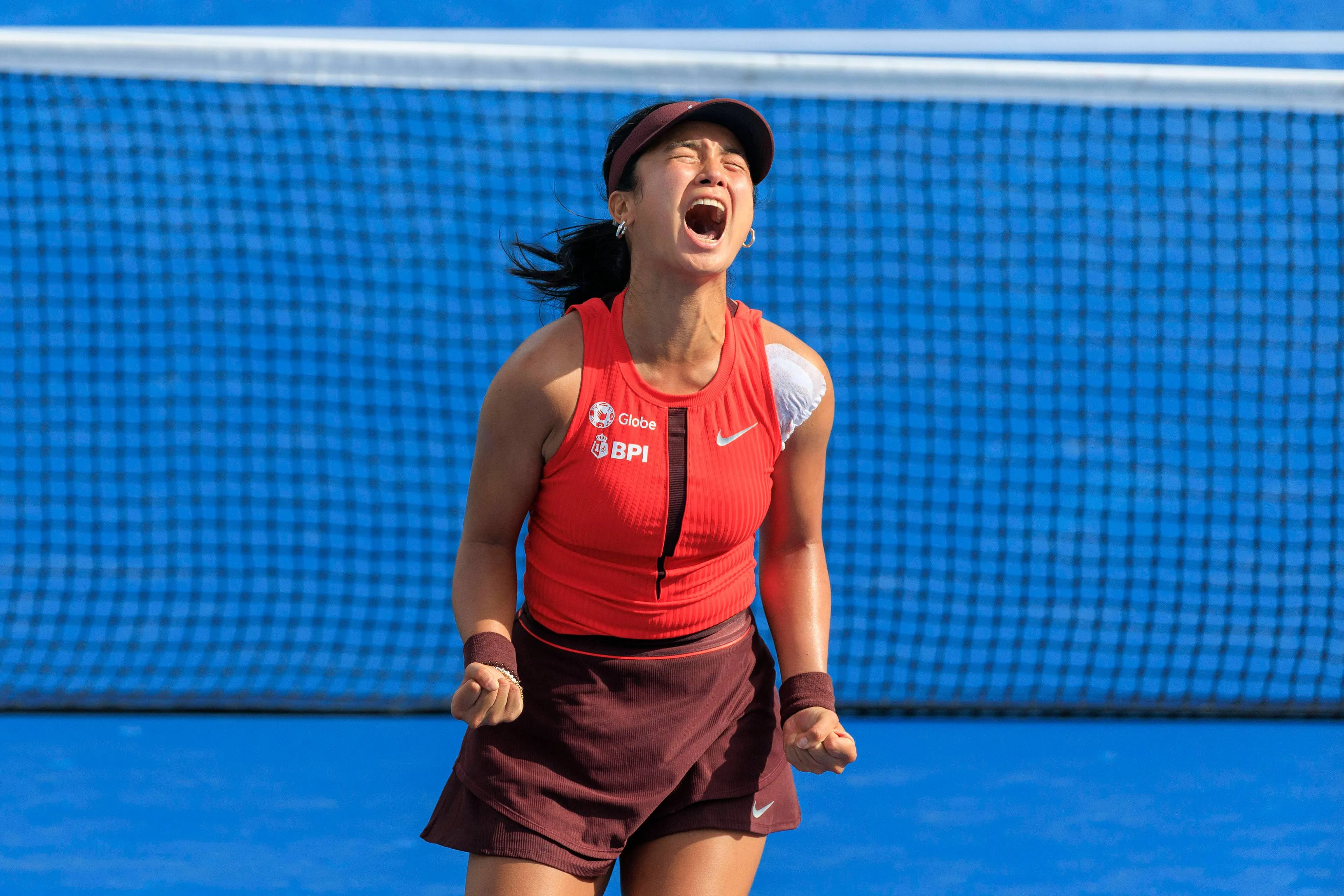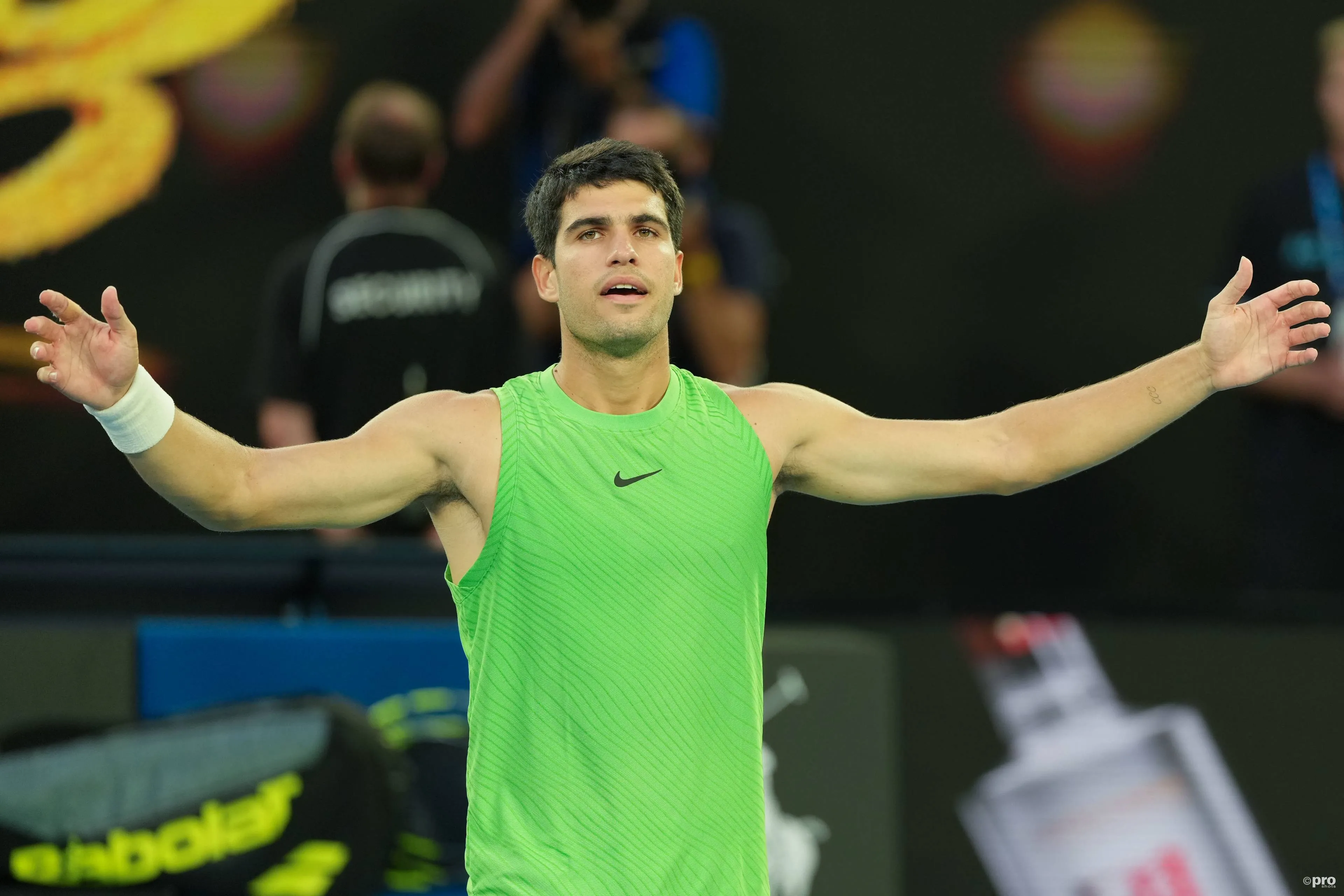"I was accused of crying during matches. Today I am considered a model of mental fortitude on the court," Swiatek reflects on mental strength
WTATuesday, 25 June 2024 at 00:00
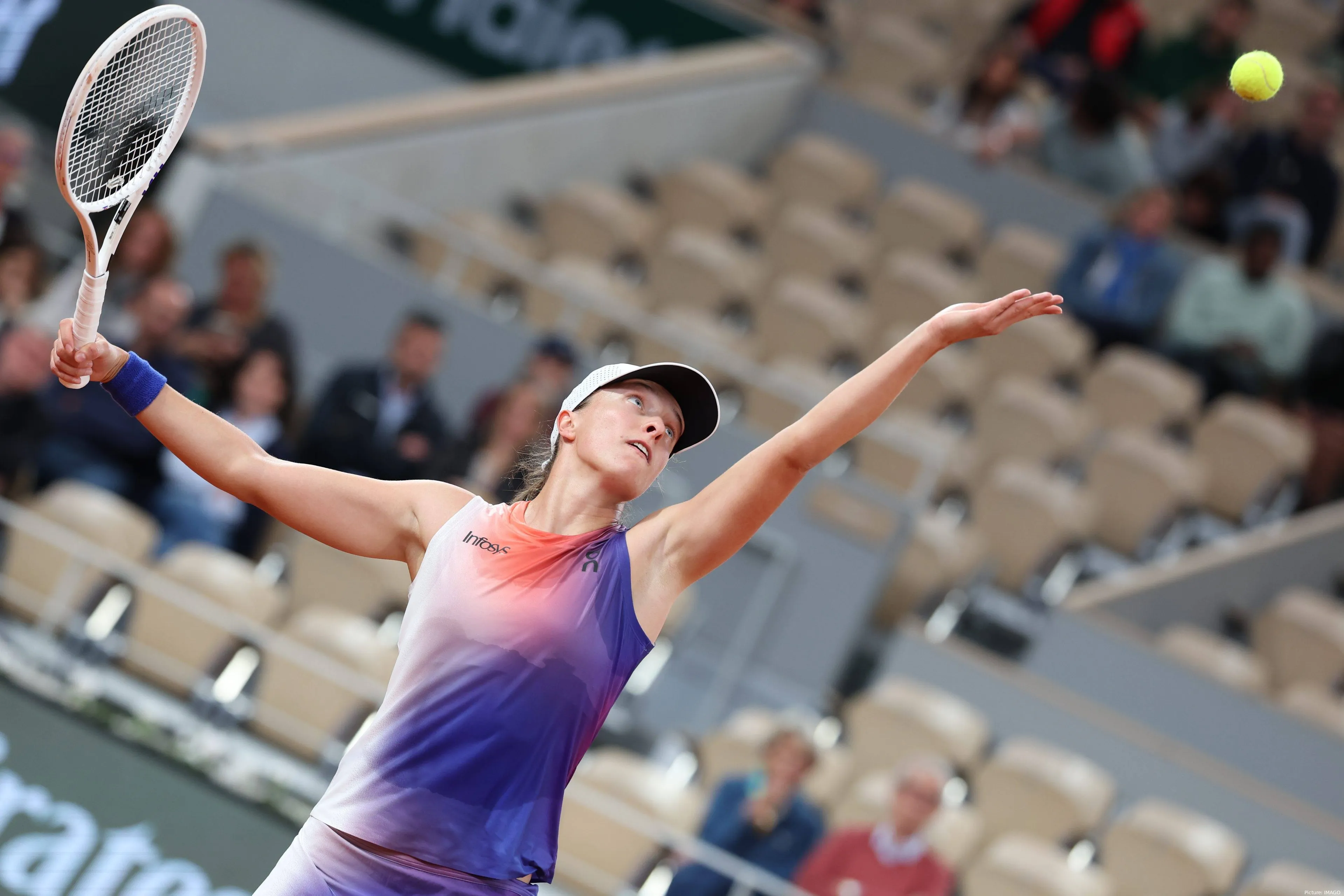
Iga Swiatek is indisputably the world No. 1 and has become
the most dominant player on the Tour. Her recent French Open title was her
fifth Grand Slam, adding to her incredible performance over the past 52 weeks,
during which she also secured five WTA 1000 titles, the WTA Finals, and the WTA
250 in her hometown of Warsaw.
The 23-year-old Polish player recently answered an interview
in Zwierciadlo alongside her sports psychologist Daria Abramowicz, reflecting
together on their work to manage the stress of the Tour and improve her
on-court mentality.
Swiatek on her mental growth
For Iga Swiatek, her support team, including Polish sports
psychologist Daria Abramowicz, is crucial. The world No. 1 has become a
reference not just for her dominant game but also for her mental strength,
which has been fundamental in maintaining her top results over the years.
Read also
Despite being known for easily winning matches with frequent
bagels, in the past 52 weeks, Swiatek has won a bagel set (6-0) 20 times and
another 38 sets by 6-1, leading the statistic. Nonetheless, the Pole also knows
how to come back when matches are against her, like the recent WTA 1000 Madrid
Open final, where she saved a match point to win the title against Aryna
Sabalenka.
"Three or four years ago, I was called very emotional,
accused of crying during matches. Today, I am considered a model of mental
fortitude on the court, and I am not afraid to say that this opinion is
well-deserved. I know how much work it takes: my work and Daria's. It didn't
happen overnight," Swiatek explained about her work with the psychologist.
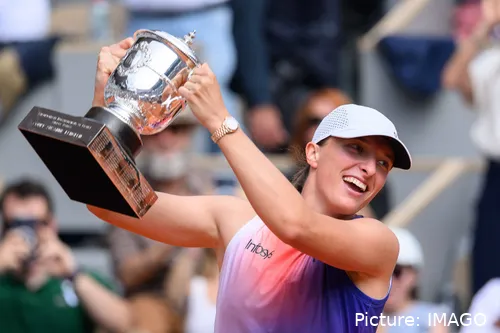
Swiatek won her 4th French Open title few weeks ago.
"I first learned to recognize, name, and express my
emotions. Then I identified the sources of tension. At the same time, Daria and
I were constantly looking for optimal tools that would allow me to reach the
level of stimulation and stress that worked for me. Because it's not that I
want to reduce the tension to zero. I need it on the court to achieve a high
level of performance."
"It's simply about taking care of oneself: proper rest,
proper management of the sports load, and many other responsibilities. I
couldn't face such a demanding sport as tennis alone; it would be difficult for
me. That's why I have a team of people behind me, great specialists in their
fields. Each one is responsible for a different piece of the puzzle that fans
see on the court. To give my best, every element has to work."
Read also
Abramowicz on Supporting Swiatek
Abramowicz commented on how she has supported Swiatek with
different strategies, including encouraging the player to play with LEGOs to
distract from stress: "In my work with Iga, I combine elements related to
belief work, emotion regulation, and using adaptive strategies. I try to
provide her with resources so that in every situation she finds herself in, she
feels she can handle it."
"We also often use things that, besides their effect on
the court, also bring some pleasure. For example, building with LEGO bricks: a
very simple activity but very relaxing and satisfying because we are creating
something. Additionally, there are also various games, logic puzzles, and
cards. Everything else is a 'company secret.'"
Swiatek added that playing with LEGOs is indeed a recurring
activity that helps her relieve tension: "Yes, building with blocks is
good mindfulness training, especially when I focus on the next steps in the
instructions and isolate myself from all external stimuli. It also stimulates
creative thinking and helps me relax in a rather pleasant way."
Read also
claps 0visitors 0
Just In
Popular News
Latest Comments
- This needs to be done, and I think Jessica Pegula is an excellent choice for chair to look into the situation. However, a very brief look at the other members of the panel would suggest a very USA heavy contingent. The group needs to represent all interests, not just turn it into a way the US can screw more money out of an already biased calendar.
- The tennis world should be kissing her feet for taking-on this long needed position in a much needed council. The WTA and ATP need a good shaking-up. Pegula's business heritage is a proven one. Let's hope she and her colleagues can stop WTA & ATP from shutting their work down and out. GO GET 'EM !!
- So the Sportswasher's largest market is... the Filipino community? That's all well and good but the hundreds and hundreds of empty seats throughout is embarrassing. Talk about bad optics!
- The poor Head Sportswasher has been whining and crying in the media, and basically threatening Saba, Iga, etc. Must be a real Ego Buster when they dangle money and people (especially Women) say, 'No thanks'.
- "Losing-itis" is not uncommon in Emma's small world. Just keeps begging the question, 'What are sponsors paying for? Limited tennis appearances... or Social Selfie Media presence?'
- Dubai can suck it up like everyone else. Just because they think they run the show, they do not. Sportswashing does not give them Power.
- You're losing your mind here.. You use a lot of space, yet inadequate knowledge. Read the WTA Rule Book 2026; it answers all your questions and accusations.
- Why single out Iga and Aryna to punish?, Since when do players get punish because they withdraw from tournaments? Maybe if they both were treated like number one and two players, they would not have this problem. The WTA discriminates against them because of their nationalities, yet they want to make money off them. Every tournament, Iga has harder draws than qualifiers from the beginning to the end. In the Australian Open they stuck Aryna out in the sun the majority of her matches in order to tire her out. She is the number one player in the world and she never got the opportunity to play with the roof closed. If they want these top players to continue playing and making money for them, then they should treat them as such. Otherwise, get the players who they are always giving out cupcake draws to like Pegula to play their tournaments. Lets see how many seats in the audience she will fill. Iga has more fans in the seats than any player in the WTA, yet she is always disrespected and mistreated because of her nationality. The WTA is a corrupt, bias and racist organization. No matter what job someone is on, you cannot tell them that they are not sick or injured.
- LOL. Billie Jean King hates being a woman.
- Pulling out a tournament is not illegal. Therefore, that is no problem. Maybe they need more rest.
Loading
